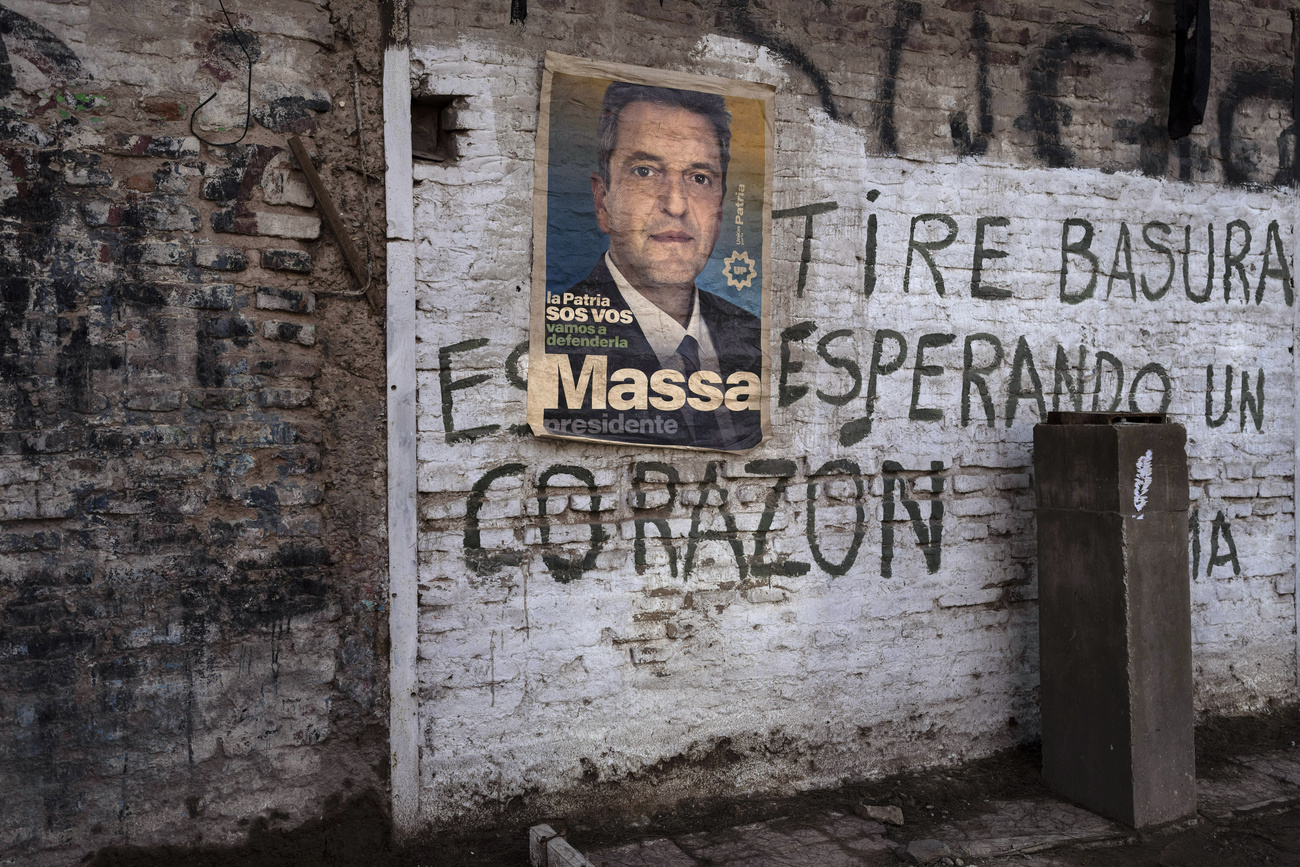Swiss visionary transforms South American luxury watch market

Lorenzo Eichmann, a second-generation Swiss national, has helped establish major Swiss watch brands in South America by a stroke of luck. For years, he has travelled between Geneva and Argentina, balancing a life in watchmaking and agriculture.
Ask a South American what comes to mind when they think of Switzerland, and they’ll likely say cheese and watches.
This stereotype isn’t surprising, given the kinds of Swiss people who emigrated to South America in the 19th century. Lorenzo Eichmann from Geneva, however, is part of both worlds.
But let’s start at the beginning, in the early 20th century. Walking through Buenos Aires, Eichmann shares his and his family’s story, in a confident Genevan accent.
In 1917, his great-uncle emigrated to Argentina, where a British employer hired him to manage a sugar factory in the northern province of Tucumán. The company grew, eventually employing up to 4,000 workers during harvest.
As his great-uncle aged, he wanted a family member to take over. Eichmann’s father, newly married, moved to Argentina to join the company, first in Tucumán and later in Buenos Aires, where Lorenzo and his brother were born.
A temporary job sparks a career
After finishing school, Eichmann left university, launched a furniture-making business with a friend, got married and moved with his Argentinian wife to Switzerland in the late 1980s.
Drawn to watches, he secured a temporary job at Baume & Mercier. “The brand’s been around since 1830, but I wondered what they’d done since then!” he jokes. Eichmann shifted to customer service, finding it unorganised.
Eager to improve processes, Eichmann focused on cataloguing parts and supplies. “We didn’t know what components our watches had, so we began categorising them. We dismantled each watch, labelling parts on a board for easy reference. It was a huge task, but it was rewarding.”
This approach allowed the company to control prices, tracking each watch’s components accurately. Shipping errors reduced significantly as parts were labelled correctly, which reduced costly customs fees.

Return to Argentina
In 1996, Eichmann’s life took another turn. The Baume & Mercier director suggested he manage a new branch in Argentina.
Eichmann returned to South America with his wife and three children. A fourth child soon followed, and his role quickly expanded across South America and the Caribbean. Eventually, he oversaw these markets for the entire Richemont Group, which owns Baume & Mercier.
However, constant travel and corporate shifts led him to switch paths. He moved to Uruguay, where he bought a dairy, raised cattle and cultivated soy. Today, he owns around 900 hectares – modest for the region. While keeping a lower profile, he continued collaborating with Swiss watchmakers in Argentina.
Watches and polo
In 2005, the Piaget watch brand asked Eichmann to form a polo team to promote their new Polo model. Argentina, known for its pampas and horse breeding, dominates the sport, with record-breaking wins at the world championships.
Piaget sought to connect with Argentina’s top polo players, despite many being more passionate about horses than watches. Eichmann’s challenge was to bridge the gap.

Piaget’s CEO wanted famed polo player Marcos Heguy to attend a promotional event in Geneva, but Heguy, living 700 kilometres from Buenos Aires, was uninterested. “A generous fee didn’t tempt him,” Eichmann recalls, “But after I outlined the benefits for his team, he agreed to a short visit.”
When they arrived in Geneva during Salon International de la Haute Horlogerie (now Watches and Wonders), Eichmann faced a mishap: he hadn’t packed formalwear and had to attend in jeans and a T-shirt, captured in photos beside Piaget’s director.
Eichmann still regularly visits Switzerland, which he holds dear, but has no plans to return permanently. “My four children feel at home in South America, and if you’re not among those struggling financially, life there is truly pleasant,” he says.
Edited by Emilie Ridard, adapted from German by Alexandra MV Andrist/ds

In compliance with the JTI standards
More: SWI swissinfo.ch certified by the Journalism Trust Initiative











You can find an overview of ongoing debates with our journalists here . Please join us!
If you want to start a conversation about a topic raised in this article or want to report factual errors, email us at english@swissinfo.ch.